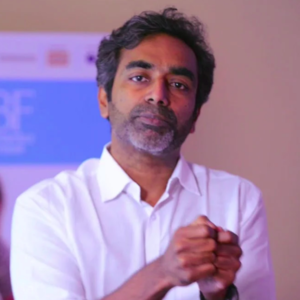Prabhir Vishnu Poruthiyil
Associate Professor
·
Core Faculty
Research Interests
MA Public Policy and Management (Development Studies), Institute of Social Studies (ISS), Erasmus University, The Netherlands, 2007
Topic A: The Privatization of Policymaking
Research Area: Business and Society, Business Ethics
Description: The role of private consultants and corporate philanthropies in policy agenda setting and governance has increased significantly in recent times. Such an outsourcing of government’s responsibilities poses a challenge to democracy as unelected groups, often representing the interests of the corporate elite, dominate policymaking processes. This research project will take a critical look at the mechanisms through which philanthropic organizations and consultancies navigate themselves into the corridors of policymaking in India.
PhD candidates with an interest in studying the state and a background in related fields like policy studies, business and society, urban planning, development studies [this is not a complete list] are encouraged to apply. A background in working for any of the philanthropic organizations, large consultancies or policymaking agencies is an advantage. The research proposals must demonstrate an understanding of the references below.
References
Hurl, C. & L.B. Werner. (2024). The Consulting Trap: How Professional Service Firms Hook Governments and Undermine Democracy, Columbia University Press.
Mazzucato, M. & R. Collington, (2023). The Big Con: How the Consulting Industry Weakens our Businesses, Infantilizes our Governments and Warps our Economies, Penguin.
Giridharadas, A. (2019). Winners Take All: The Elite Charade of Changing the World. Vintage.
—
Topic B: Age-Friendly Cities
Research Area: Urban Policy
Description: The twin processes of urbanization and demographic ageing have led to the ageing of cities – the proportion of older persons is projected to constitute one-fourth of urban residents in developing countries. The design of cities of the future cannot ignore this transformation. In India, negotiating urban spaces with age-related frailties is rendered fraught due to durable inequalities reinforced due to caste, religion, gender, and political affiliations. The project seeks to answer an empirical-normative question – what urban planning principles and policy practices can ensure that interests of older persons in cities of future? The WHO’s normative framework ‘age-friendly cities and communities’ (AFCC) and its critiques provide the policy dimension of the project.
This is an interdisciplinary project that brings together three streams of scholarship – urban policy, ageing studies, and technology – to influence social policy. The finding should inform the policy makers to help convert the cities to be age-friendly and more inclusive. PhD candidates with an interest in studying the state and a background in related fields like policy studies, social work, urban planning, development studies [this not an complete list] are encouraged to apply. The research proposals must demonstrate an understanding of the references below.
References
Greenfield, E. A., & Buffel, T. (2022). Age-friendly Cities and Communities: Research to Strengthen Policy and Practice. Journal of Aging & Social Policy, 34(2), 161-174.
Doheny, S., & Jones, I. R. (2021). What’s so Critical About It? An Analysis of Critique within Different Strands of Critical Gerontology. Ageing & Society, 41(10), 2314-2334.
Peine, A., Marshall, B. L., Martin, W., & Neven, L. (2021). Socio-gerontechnology: Key Themes, Future Agendas. In Socio-gerontechnology (pp. 1-23). Routledge.
Van Maanen, J. (2011). Tales of the Field: On Writing Ethnography. University of Chicago Press.
—
Topic C: Backsliding Civil Liberties and Democratic Policymaking
Research Area: Social Policy
Description: For some years, scholars and agencies such a V-Dem, Freedom House, are raising concerns that democracy as we know it is in peril. By definition, liberal democracy requires civil liberties. These include the free and fair elections, universal franchise, and enlightened citizenry, free press, protection of human rights, and a commitment to equality. Policymaking will no longer proceed as expected as intended if any of these necessary conditions are absent. But did civil liberties ever receive complete endorsement of the state?
This research project is intended to trace the history of civil liberties in India with a specific focus on organizational history of the People’s Union of Civil Liberties (PUCL). The organization emerged in response to the Emergency in the mid-1970s and since then has been at the forefront of defense of civil liberties in India.
PhD applicants with an inclination for historical research and collecting oral histories with a background in areas like political science, journalism, etc. are encouraged to apply. The research proposals must demonstrate an understanding of the references below.
References
Guha, R. (2017). India After Gandhi: The History of the World’s Largest Democracy. Pan Macmillan.
Haggard, S., & Kaufman, R. (2021). The Anatomy of Democratic Backsliding. Journal of Democracy, 32(4), 27-41.
Van Maanen, J. (2011). Tales of the Field: On Writing Ethnography. University of Chicago Press.
